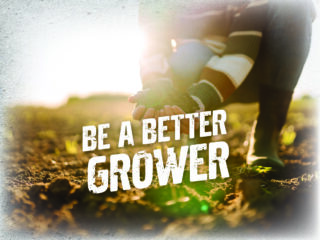I view the world from the perspective of an ecologist. I am fascinated by the biological and physical principles that define natural interactions. I understand that life can be challenging in nature. Plants and animals face daunting realities where their success is predicated only on the ability to grow and survive. In nature, success merely equates to passing genomes to offspring from one generation to the next. Every moment in time is vital for a plant to achieve its biological success. On the contrary, humans face different realities in life; you cannot compare human success to the natural world. This is the dichotomy of coexistence. This article shares my experiences growing, what I learned, and how it helped me define my success.
Growing up in the Garden
My parents were passionate gardeners. We spent weekends working in our gardens at home in my early years. As early as I can remember, with a mini shovel, I was helping my parents dig holes, plant seeds, and weed in the garden beds. When I was young, growing plants seemed quite simple: water, soil, sunlight, and a little luck. I loved growing plants in the garden; it made me happy.
A Deeper Understanding
As I learned more about biology and the physical sciences through my studies in school, I began to view plant growth with a deeper understanding. Scientifically, biological success is defined as maintaining the continuity of life. For plants to succeed, they require certain conditions, including available water, nourishment, and a compatible environment to grow.
I learned how plants could be affected by environmental stress, how biodiversity is completely regulated by climate and ecological conditions, and how plant diversity increasingly declines the further north and south one travels from the equator. In nature, the environment ruthlessly selects for plant success. Likewise, many plants have developed different physical, metabolic, and chemical tactics over thousands of years to improve their resiliencies to environmental variability. Plants sense environmental stress, and their growth is often inhibited as they channel energy to their adaptive survival mechanisms. The plants are not just sitting there looking pretty. Biological success is a ruthless game of probability with no guarantees. In nature, plants work day after day, minute by minute, to survive and grow.
Do Plants Think and Feel?
Someone once asked me if I thought plants had a consciousness. If we agree that consciousness is the state of awareness of one’s surroundings, then I believe they do. Most humans also have a conscience but navigate life with a different reality than any other organism on Earth. Humans are experts in manipulating their environment. This means that the environmental (biotic and abiotic) surroundings, which are crucial for plant success, are far less important to humans. This is only possible because humans can use their cognitive abilities to shape the world around them. Human behaviour is regulated by neurophysiological (i.e., nervous system function), metaphysical, and chemical processes that they use in tandem to shape their mental faculties.
Furthermore, human perception is informed by three separate streams of the subconscious:
- reflecting: memories of the past (including physical and emotional experiences)
- the present (current state of mind and body)
- the future (thoughts of what may happen)
These subconscious inputs regulate our thoughts, moods, behaviours, and even our appetites from one moment to the next. These perceptions produce our own personalised reality TV shows directed by manifestations of the mind. Here exists the dichotomy for life on Earth: most life is bound by the concrete laws of nature, while others are the mere manifestations of the mind.

Become a Better Grower: Success Stories
Life can be an extremely hard experience in natural systems. Plants and animals are constrained by the daunting realities of natural law, where biological success is predicated on the ability to survive, grow, and succeed with the purpose of continuity.
People, however, are not constrained by the daunting realities of natural law. If our existence was bound to the principles of biological success, then we are undeniably successful. The last census reports indicate that the human population is expected to increase to 9.7 billion over the next 30 years. We are winning the probability game of life, but at what cost? Some predictions suggest significant challenges for biodiversity and the success of nature in the future as the human population increases.
Through ancient years, nature guided our wisdom by providing shelter, growth, health, and abundance. If biological success no longer means human success, how do people define their achievements in today’s world?
There may be answers from the simple lessons learned from my youth, growing plants in the garden. To be successful, people need adequate nourishment and shelter (environmental conditions) to grow. We need to adapt to our surroundings and be planted firmly in the moment, where we can spend our days growing and not just surviving.
Human success may be a simple exercise of mental gardening, where we can cultivate all things that make us strong and happy and weed out all doubt and fear. Our success exists in a single moment and grows like a plant from one moment to the next. It can be determined only by what we are willing to do to grow today, requiring strong minds because we rely on cognition for everything. Success is the nature of learning and teaching; otherwise, we are guaranteed failure. Every moment in time is a precious opportunity to grow. This is what I learned from growing plants and how I changed how I grow.
Trending Products

Ahopegarden Hydroponics Growing Sys...

Ahopegarden Hydroponics Growing Sys...

CYBSDF hydroponic-Growing-Kits-and-...

Hydroponics Growing System Kit 12Po...

Hydroponics Growing System Kit Indo...

BN-LINK 8 Outlet Surge Protector wi...

Light-Blocking Cube Caps Compatible...

SKINNYBUNNY Rockwool Cubes 1 inch, ...

Reusable Plant Support Clips for Ga...

